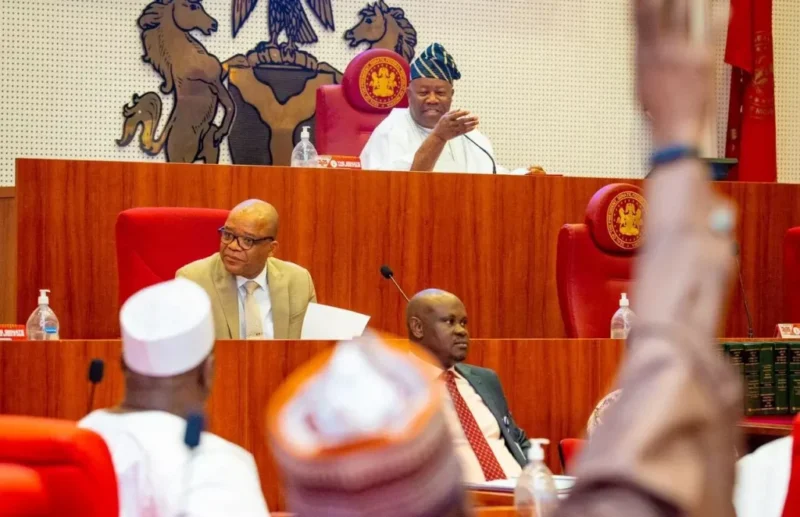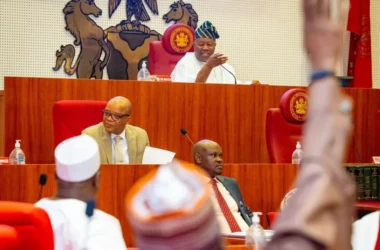The Nigerian Senate has urged the Nigeria Deposit Insurance Corporation (NDIC) to maximize the value of assets remaining from the defunct Heritage Bank.
This appeal was made during the NDIC retreat organized for the Senate Committee on Banking, Insurance, and Other Financial Institutions. The event, held in Lagos, was themed “Building Resilient Financial Systems through Effective Legislative Intervention.”
Chairman of the Committee, Senator Adetokunbo Abiru, commended the NDIC for its swift actions in addressing the needs of Heritage Bank’s depositors.
Abiru said: “I applaud the NDIC for its diligence and commitment to restoring hope to those affected. The process of settling depositors is never easy, particularly in cases involving significant financial distress, but your dedication to resolving this matter demonstrates the high standard of operational efficiency that we, as stakeholders, have come to expect from the NDIC.
“Nevertheless, I urge the Corporation to ensure that maximum value is realized from the bank’s remaining assets, which will ultimately contribute to the settlement of outstanding depositors and other creditors. It is my hope that all the challenges associated with settlement of the Bank’s stakeholders including those to do with liquidation dividends for corporate customers are resolved speedily, effectively, and efficiently.”
The retreat also served as a platform to address broader concerns within Nigeria’s evolving financial landscape. NDIC Managing Director Bello Hassan expressed that the goal of the retreat was to foster stronger collaboration between the NDIC and the Senate, especially regarding the growing risks linked to new financial products, digital services, and the impact of globalization on the sector.
Hassan noted that the rapid evolution of financial technology, globalization, and consolidation has brought unprecedented changes to Nigeria’s financial industry.
Hassan said: “ In recent years, the financial services sector has experienced significant transformation, largely driven by advances in technology, globalisation and consolidation. New services and products have emerged, while new players and financial technologies have been challenging traditional service providers through faster, cheaper and reliable services.
“While this development presents opportunities for growth, we must, however, be conscious of the additional risks and complexities that the system may be further exposed to.
“To address this concern, stakeholders, particularly charged with oversight functions, must collaborate more than ever before.
“In this collaborative effort, the legislature must be consciously determined to redesign the legal framework that will support the current financial advancement while promoting innovation and consumer protection.”










